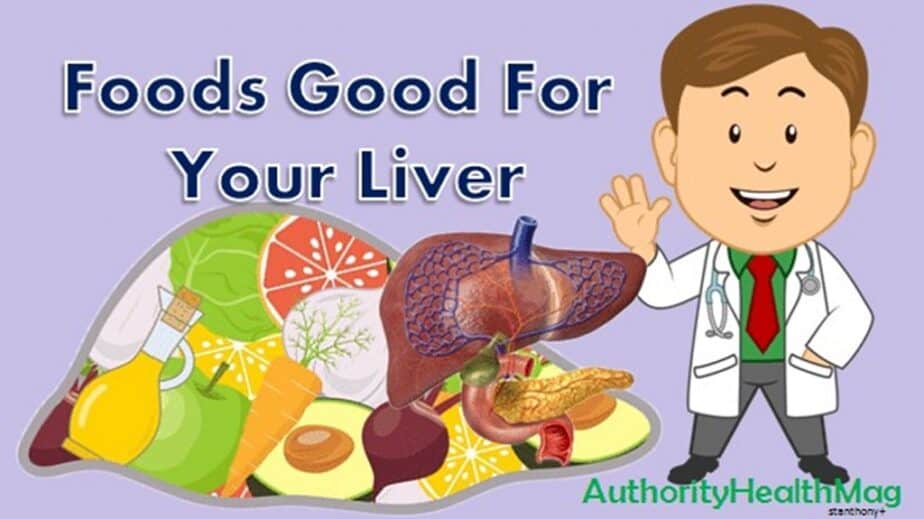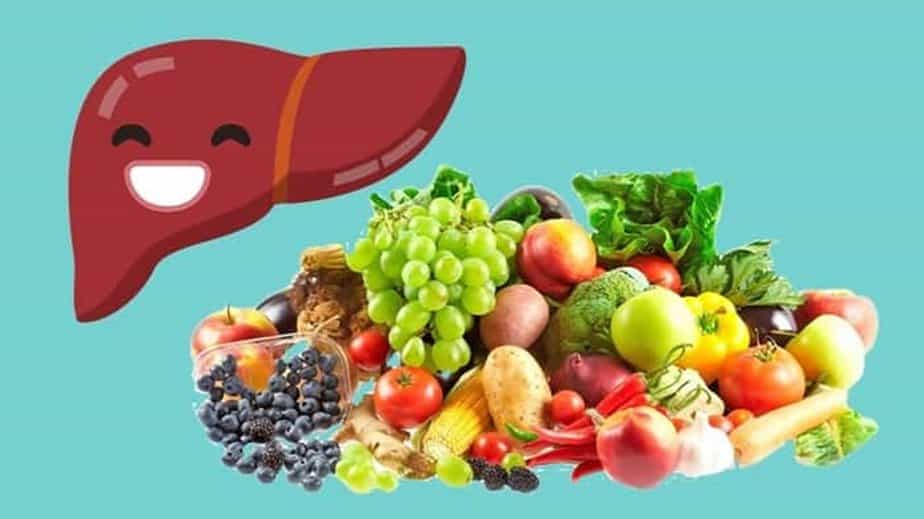Welcome to this post on the best foods for a healthy liver, the best diets for fatty liver, liver detox, and liver cleansing.
The liver is constantly busy as it performs more than 500 functions in the body. A healthy liver is fundamental to a person’s good health.
Dr. Hermeet Singh Suri, a holistic nutritionist, and renowned homeopath, says, “The liver has many important functions that keep a person healthy. It removes harmful material from the bloodstream and helps digest food.”
The liver is responsible for some of the vital functions of the body that are necessary for keeping a person alive and healthy.
It is a fat-burning organ in the body. The liver converts the nutrients it gets from food into essential blood components and stores vitamins and minerals.
The liver helps produce proteins and enzymes to maintain hormone balance in our bodies.
This vital organ in our body is also responsible for maintaining a healthy immune system.
The modern food habits and lifestyles of people are severely jeopardizing the healthy functioning of the liver. The worst enemies of the liver are junk foods, alcohol, smoking, continuous medication, and stress.
According to a Mayo Clinic report, microbial infections, harmful chemicals, or inherited diseases can all affect the liver.
Poor functioning of the liver gives rise to several common health problems like obesity, chronic fatigue, weak digestion and metabolism, allergies, liver cirrhosis, headaches, and many more.
Dr. Suri recommends avoiding alcohol, smoking, and tobacco for better liver health. Excessive intake of coffee and white sugar is also bad for the liver.
Good sleep, regular exercise, and drinking a sufficient amount of water daily are necessary for the good health of the liver.
Liver-Friendly Foods And Liver Cleansing Diets

Have you ever wondered what foods are good for your liver?
If you care for your liver, then you should certainly be paying a lot of attention to eating healthy diets that matter most for the healthy functioning of the liver.
Let us look at some of the best diets or foods for a healthy liver:
1. Gooseberry
Indian gooseberry (Amla), a rich source of Vitamin C, is known for its ability to keep the liver healthy and well functioning; it is one of the best foods for the liver.
According to a few recent studies, Indian gooseberry extracts can make the liver healthy and protect it from common infections affecting the liver.
According to studies, amla has beneficial effects on liver function and reduces hyperlipidemia and metabolic syndrome.
It is a prominent ingredient in Ayurvedic and herbal remedies used to treat sluggish livers.
It is best to eat raw amla or gooseberry. You can add it to salads and vegetable dishes or make gooseberry pickles. It is a good fatty liver diet worth eating daily.
2. Licorice
Licorice is one of the best fatty liver foods and liver-cleansing diets you can think of.
Licorice is popularly used as a prominent ingredient in Ayurvedic medicines for curing liver diseases like non-alcoholic fatty liver disease.
The therapeutic properties of licorice are beneficial for people suffering from liver cirrhosis.
A high level of transaminase enzymes, namely ALT and AST, in the blood, is harmful to the liver.
Recent research suggests that consuming licorice root extract regularly for a period can reduce the transaminase enzymes in the blood.
Drinking licorice tea is the best way to consume it regularly. In an organic products shop, you will find licorice roots or powder, which you can procure for preparing the licorice tea.
3. Flaxseeds
Flaxseed is an excellent liver-friendly food that boosts the overall functioning of the liver.
The liver does not produce hormones, but it plays a significant role in hormonal imbalances. The liver metabolizes the hormones once they have done their work in the body.
Any of the hormone receptors may bind a specific hormone and make it circulate in the blood.
The liver has to work hard to filter the excess amount of hormones bound by receptors in the blood, as they do not get metabolized easily.
Studies have reported that the phytoconstituents in flaxseeds can prevent protein receptors from binding the hormones. Consuming flax seeds can ease the rigorous work of the liver in filtering the bound hormones.
You can generously add flaxseeds to your toast, salad, or cereal to reap their liver-protective benefits.
4. Vegetables
You must include a variety of vegetables in your daily diet for optimum functioning and toxic cleansing of the liver.
Cruciferous and leafy vegetables must be an unavoidable part of your fatty liver diet menu.
Leafy green vegetables like lettuce and spinach are excellent for neutralizing metals, pesticides, and chemicals that may be present in the foods we consume; these vegetables help the liver detoxify the body.
Vegetables like Brussels sprouts, beets, cabbage, broccoli, carrots, and onions help the liver produce some of the enzymes required for digestion. This vegetable also helps the liver secrete enzymes that help in the excretion of potential carcinogens (cancer-causing substances) from the body.
5. Guduchi
Guduchi (Tinospora cardifolia), also known as Amrit, is one of the most valued herbs in the Ayurvedic system of medicine.
Guduchi is known for its detoxifying, rejuvenating, immune-boosting, and anti-rheumatic properties. It is an excellent herbal item that must be part of your fatty liver diet plan and liver cleansing diet.
Amrit contains detoxifying properties that can remove toxins from the liver and improve the healthy function of the liver.
Usually, it does not have any side effects. However, Ayurvedic physicians warn that using this herb in excess can precipitate a liver crisis if the patient has a large number of toxins in the liver.
Take a glass of water and dilute it with 1 teaspoon or 500 mg of Guduchi root powder. Drink it once a day. Alternatively, use juice extract for fresh leaves of Guduchi or take Guduchi capsules daily.
6. Grapefruit
All citrus fruits are foods that cleanse the liver and are also very good foods for fatty liver.
Grapefruits are one of the best liver detox foods that you should preferably include in your daily diet plan.
Consuming grapefruits may help the liver flush out carcinogens and toxins from the body.
The antioxidants and vitamin C contained in grapefruit are useful for the healthy functioning of the liver.
It is good to have a small glass of freshly squeezed grapefruit juice daily to boost the production of liver detoxification enzymes.
7. Garlic
Garlic helps the liver produce detoxifying enzymes that are necessary for flushing out the toxic contents of the body. It is an excellent liver-cleansing diet with several other health benefits as well.
Garlic contains a good amount of allicin and selenium, which are potent natural compounds that can assist the liver in detoxifying the body.
Garlic also contains arginine, an amino acid, important for relaxing the blood vessels and improving the healthy functioning of the liver.
Eat a few cloves of raw garlic daily; you can also add garlic paste or a few slices of garlic to the vegetable dishes or smoothies you make.
8. Beets and Carrots
Beets and carrots are two of the best sources of plant flavonoids, which are excellent for a healthy liver and the production of enzymes meant for detoxifying the body.
Dedicated beet lovers swear that juicy, deep red beets or carrots fresh from the garden make the finest eating delicacy. These are some of the commonly available foods that are good for your liver.
Beets also contain a substantial amount of immune-boosting vitamin C and manganese, which are necessary for a healthy liver.
9. Green Tea
Green tea contains powerful antioxidants known as catechins, which make it one of the best liver detox diets.
The antioxidants in green tea help improve the healthy functioning of the liver and protect it from the damaging effects of toxic substances and alcohol.
However, according to the findings of some recent studies, sipping too much green tea extract could cause herbal hepatotoxicity or liver damage.
10. Lemons
Lemon, like other citrus fruits, is very useful for improving the functions of the liver.
Lemon juice contains Vitamin C in abundance; this acts as a natural liver detox agent besides improving the overall immune system of the body.
Lemon juice also assists the liver in cleansing out toxic materials and aiding the digestion process.
11. Avocados
Eating avocado fruits helps your body produce a valuable antioxidant called glutathione.
Glutathione is required by the liver to flush out the toxic contents of the body. This antioxidant also protects the liver from potential liver damage, which is usually caused by alcohol or toxic substances in the body.
12. Turmeric
Turmeric, a commonly used spice in cooking, helps our body metabolize fat and stimulate the production of bile.
Turmeric assists the liver in detoxifying itself and the rest of the body. Some studies have shown that the antiviral action of turmeric is effective in preventing the multiplication of the viruses causing hepatitis B and C.
Make sure to add a little turmeric wherever possible while you are cooking various food items.
Alternatively, you can consume it by adding a pinch of turmeric powder to plain milk.
Final Thought
We have just discussed some of the best liver-friendly foods; of course, there are other ones too. The food we have discussed above is also an excellent fatty liver diet and liver detox food.
To sum up, some of the best foods for the liver are:
- Cruciferous (leafy) green vegetables
- Carrots
- Garlic
- Guduchi
- Turmeric
- Oranges
- Grapefruits
- Licorice
- Flaxseeds
- Lemons
- Omega-3 fats
- Asparagus
Eating good foods for a healthy liver may not produce good results if you have other foods or habits that damage the liver.
To care for your liver, you must avoid bad foods, toxins, and medicines that hurt the liver. Here are some of the main offenders that damage the liver:
- Marijuana
- Illicit drugs
- Alcohol
- Cigarettes
- Some herbal remedies
- Some prescription medicines
- Some over-the-counter medications
- Large doses of vitamin A
- Fatty foods
- High levels of saturated fats
- High-calorie intake/obesity
- high salt intake.
